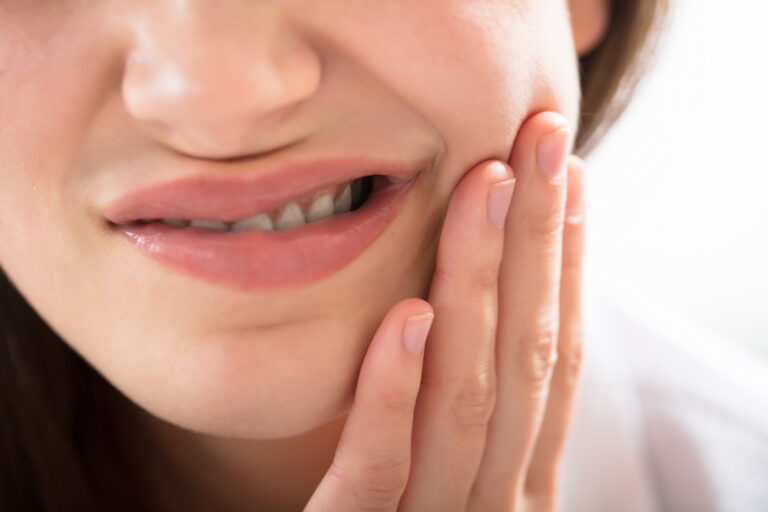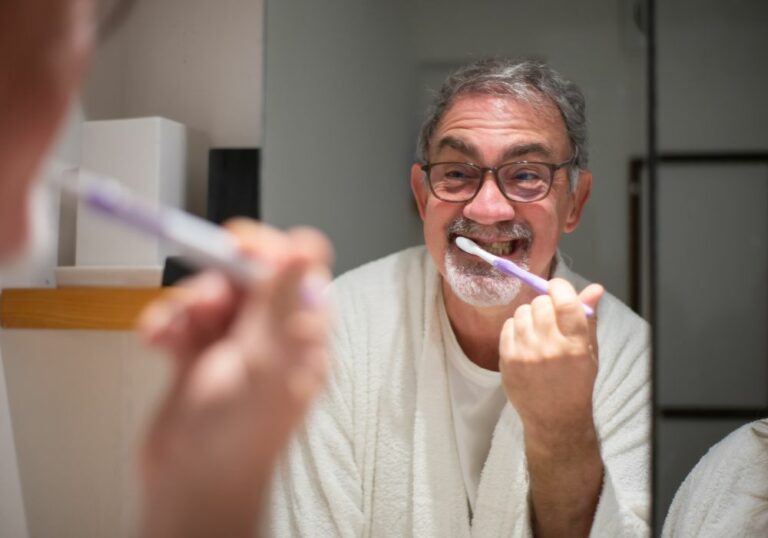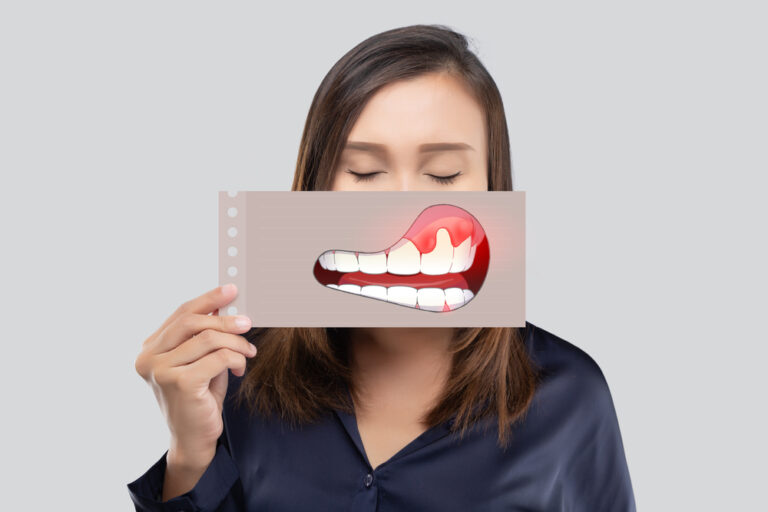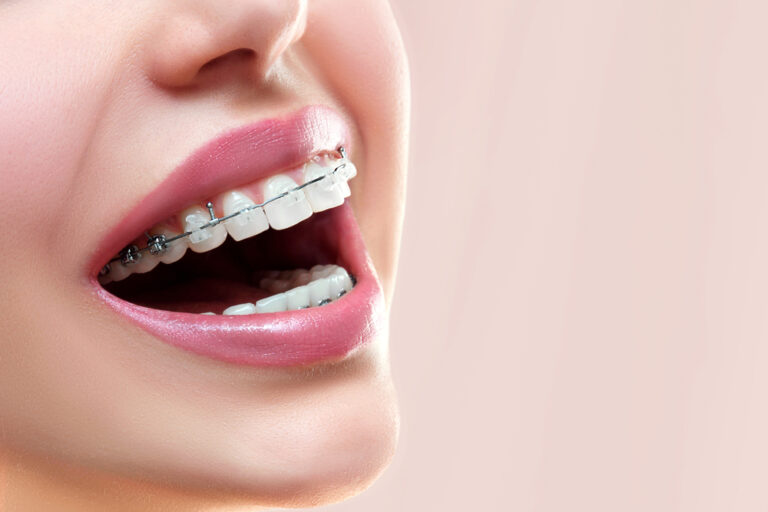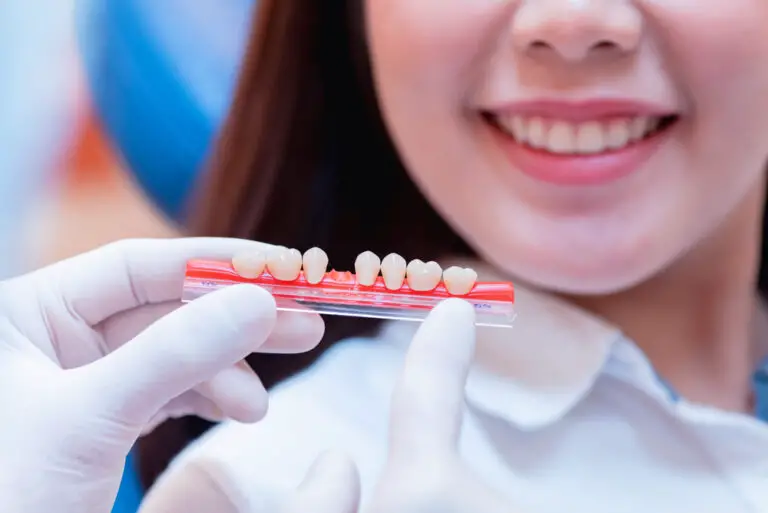Pain in the left ear and teeth can have various causes
Pain in the left ear and teeth occurring together can be caused by a few different conditions. Here are some of the possible reasons for this symptom:
Ear infection
Ear infections, medically known as otitis media, are a common cause of pain in one ear. The infection leads to inflammation and fluid buildup in the middle ear, causing pressure and pain. The pain may radiate to the teeth and jaw on the same side as the infected ear.
Ear infections are more common in children but can occur in adults too. They are usually caused by a bacterial or viral infection. Swimming, cold and flu, allergies, and smoking can increase the risk of developing an ear infection.
TMJ disorders
Temporomandibular joint (TMJ) disorders affect the joint connecting the jaw to the skull. Problems with this joint can lead to pain in the jaw joint and muscles, causing ear and tooth pain on one side.
TMJ disorders can be caused by injury to the joint, grinding or clenching of teeth, arthritis, and stress. Symptoms include pain while chewing, clicking sounds, and headaches.
Trigeminal neuralgia
Trigeminal neuralgia is a chronic pain condition affecting the trigeminal nerve, which carries sensation from the face to the brain. It causes sudden, severe pain along one side of the face including the cheek, jaw, teeth, gums, lips, or chin.
Attacks of pain can be triggered by touching the face or by chewing. It usually affects people over 50 but can also occur in younger adults. The exact cause is unclear but may involve blood vessel compression of the nerve.
Dental abscess
A dental abscess is a pocket of pus that forms in the teeth or gums due to a bacterial infection. Abscesses at the root of the teeth can cause pain in the tooth as well as the jaw, ear, and side of the face.
Abscesses occur when there is damage to the pulp of the tooth, usually from deep decay, cracks or trauma. The damaged pulp becomes infected by bacteria which multiply and spread. Prompt antibiotic treatment and drainage of the abscess is required.
Sinusitis
Inflammation of the sinuses, known as sinusitis, can also cause pain in the teeth and ear on one side. The maxillary sinuses sit below the eyes and behind the cheekbones, close to the upper teeth roots.
Sinusitis usually happens due to a viral, bacterial, or fungal sinus infection. It leads to congestion, facial pain and pressure, headache, fever, and toothache. Sinusitis tooth pain usually feels like a dull ache in the upper back teeth.
Diagnosing the cause of simultaneous ear and tooth pain
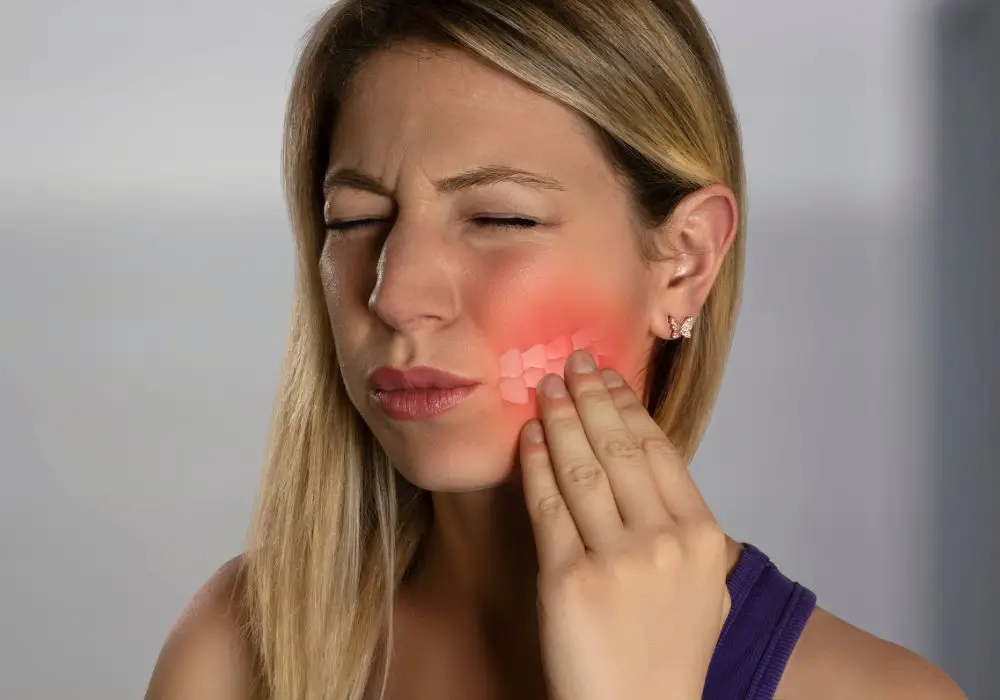
Determining the exact cause of pain in the left ear and teeth requires an examination by a doctor or dentist. Here are some of the steps they may take:
- Medical history – Your doctor will ask about your symptoms, when the pain started, and any related conditions. Information about your general health can help pinpoint the cause.
- Physical exam – The ear canal and eardrum will be checked for signs of infection using an otoscope. Your doctor will check the facial muscles, sinuses, neck, and teeth for tenderness.
- Hearing test – An audiogram can help assess your hearing and check for problems in the inner, middle or outer ear.
- Dental exam – Your dentist will look for dental problems like decay, cracks, or gum disease that could be causing tooth pain. They may order x-rays to check roots and jaw.
- TMJ exam – The jaw joint and muscles will be palpated to check for pain, clicking, or limitation of motion.
- Imaging – CT or MRI scans of the sinuses or jaw may be done to get a detailed look at the anatomy.
- Blood tests – These can check for infection or conditions like arthritis.
Once a diagnosis is made, proper treatment can begin. Most causes of simultaneous ear and tooth pain are very treatable.
Possible treatments for ear and tooth pain
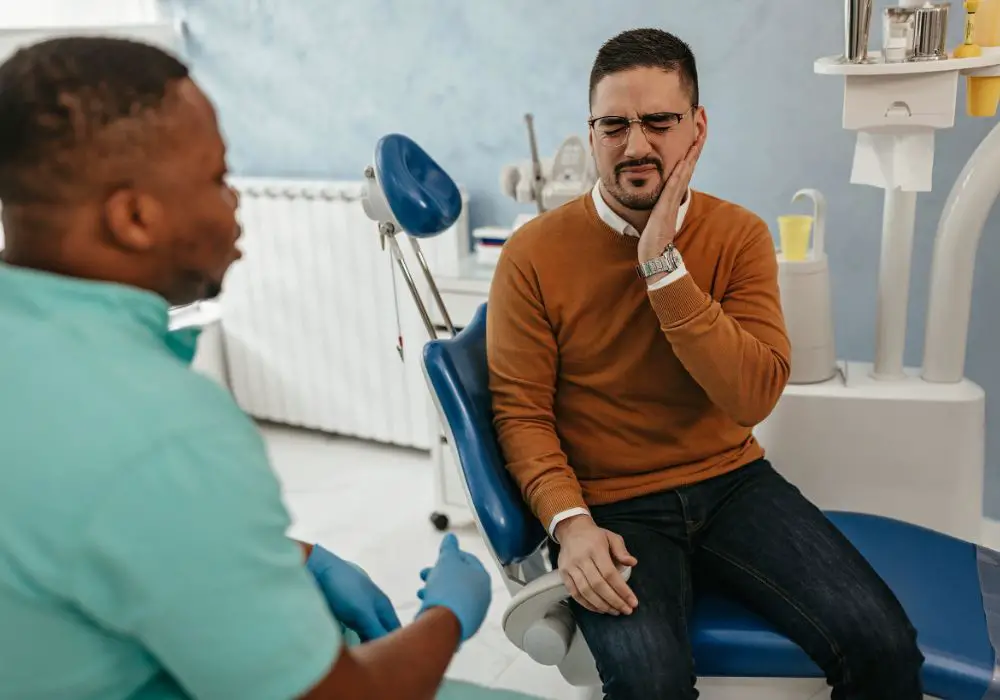
The treatment will depend on the underlying cause of the symptoms. Here are some options your doctor may recommend:
Ear infection treatments
- Antibiotics – Bacterial infections are treated with antibiotics, usually amoxicillin or azithromycin.
- Decongestants and antihistamines – These help relieve stuffiness and fluid buildup in the ear.
- Pain relievers – Ibuprofen, acetaminophen, or oxycodone can relieve aches.
- Warm compress – Applying a warm, damp cloth over the affected ear can ease pain.
- Ear drops – Medicated ear drops like neomycin help fight infection.
- Surgery – If infections keep recurring, a tympanostomy tube may be placed in the eardrum to drain fluid.
TMJ disorder treatments
- Pain medication – Anti-inflammatories like ibuprofen can relieve pain.
- Physical therapy – Stretches and exercises can strengthen jaw muscles and improve function.
- Nightguard – Wearing a mouthguard at night prevents teeth grinding and clenching.
- Surgery – Severe TMJ damage may need corrected with surgery on the joint.
Trigeminal neuralgia treatments
- Anticonvulsants – Medications like carbamazepine or oxcarbazepine can block nerve impulses.
- Muscle relaxants – These help relieve muscle spasms and tension.
- Surgery – Procedures like microvascular decompression can relieve blood vessel compression on the nerve.
Dental abscess treatments
- Drainage – The pus inside the abscess needs drained, either through root canal or lancing.
- Antibiotics – These are prescribed to clear the bacterial infection.
- Pain medication- Over-the-counter pain relievers can provide relief.
- Root canal therapy – This can remove diseased pulp and save the tooth.
- Tooth extraction – If the tooth cannot be saved, pulling it will cure the infection.
Sinusitis treatments
- Nasal corticosteroids – Sprays like Flonase reduce sinus swelling and pressure.
- Pain medication – Ibuprofen or acetaminophen can alleviate pain.
- Saline irrigation – Rinsing the sinuses with saltwater helps flush out mucus.
- Antibiotics – Bacterial infections may need antibiotics like amoxicillin.
- Decongestants – Pseudoephedrine tablets or nasal sprays open congested passages.
Prevention tips to avoid further ear and dental pain
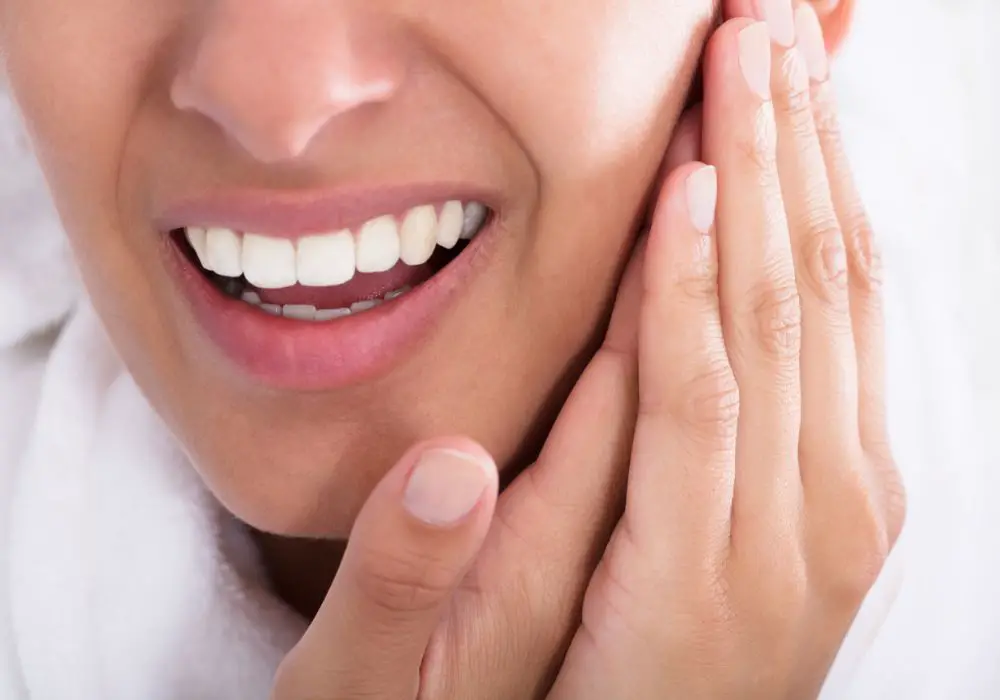
Once the cause of your ear and tooth pain is treated, there are some helpful tips to avoid recurrence:
- Practice good oral hygiene – Brush twice daily, floss regularly, and see your dentist for cleanings and checkups every 6 months.
- Avoid smoking and secondhand smoke – Smoking boosts the risk of ear infections.
- Use earplugs around loud noise – Protect your ears from excessive noise levels.
- Drink lots of water – Staying hydrated thins out mucus and prevents sinus congestion.
- Take frequent breaks if you grind your teeth – Relax your jaw muscles regularly if you have a clenching or grinding habit.
- Wear a nightguard if advised – This protects your teeth from damage caused by grinding or clenching when sleeping.
- Avoid resting your jaw on your hand – This habit can contribute to TMJ strain over time.
- Manage stress levels – Stress can worsen bruxism, TMJ issues, and tension. Make time for relaxation.
- Get the flu shot – Preventing the flu helps stop flu-related ear infections.
Seeing your doctor and dentist right away when experiencing new ear and tooth pain is important for proper diagnosis and treatment. Many causes of such pain can be readily fixed before they become severe issues. Taking preventive measures can also reduce the likelihood of recurrence.
Frequently Asked Questions about Left Ear and Tooth Pain
What does it mean if I have pain in my left ear and upper teeth?
Pain in the left ear and upper back teeth can often be caused by sinusitis. A sinus infection behind the cheekbone and upper teeth may refer pain to these areas. Dental issues like an abscess of the upper back molar can also cause such pain.
Can ear infections cause tooth pain?
Yes, ear infections can definitely cause tooth pain. The nerves that supply the ear are closely connected to those supplying the teeth, gums, and lower jaw. Ear infection pain and pressure can radiate to these areas, especially the lower back teeth on the same side as the infected ear.
Why does my earache come and go?
An earache that comes and goes is most likely being caused by a middle ear infection, medically termed acute otitis media. The infection leads to fluid buildup behind the eardrum which comes and goes as the swelling and inflammation waxes and wanes. Coming and going ear pain should be examined by a doctor.
Can teeth grinding cause ear pain?
Yes, excessive teeth grinding and clenching, known as bruxism, can contribute to earaches. Grinding places pressure on the temporomandibular joint (TMJ) and can cause inflammation of the joint. Since the joint is located right by the ear, this inflammation can refer pain to the ear.
What home remedies help an earache?
Some home remedies to try for a mild earache include a warm compress over the ear, OTC pain relievers like acetaminophen or ibuprofen, nasal decongestant sprays or drops, using a humidifier, drinking lots of fluids, and getting extra rest. Have a doctor examine an earache lasting more than a day or two.

